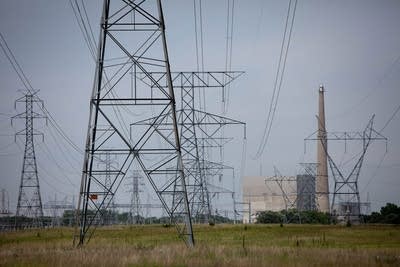Costs uncertain for Xcel to meet new nuclear rule
Go Deeper.
Create an account or log in to save stories.
Like this?
Thanks for liking this story! We have added it to a list of your favorite stories.

Xcel Energy said Friday it does not yet know how much it will cost to comply with new regulations issued by the Nuclear Regulatory Commission following the Fukushima nuclear accident.
The NRC ordered 31 nuclear plants, including Xcel's Monticello plant, to install special hardened venting systems that plant managers would be able to operate during a disaster.
Xcel already has a hardened venting system on its wet well, but officials need to make sure the system can respond well to the pressures, temperatures, hydrogen concentrations and radiation levels from a damaged reactor, said Terry Pickens, director of nuclear policy for Xcel.
The NRC order will require Xcel to install a hardened venting system on its dry well. Xcel is still studying how much the upgrades will cost. The Nuclear Energy Institute, which represents the industry, said it's too early to know how much the new regulations will cost. The institute said the costs will likely be different for every plant.
Turn Up Your Support
MPR News helps you turn down the noise and build shared understanding. Turn up your support for this public resource and keep trusted journalism accessible to all.
Pickens said the changes ordered by the Nuclear Regulatory Commission are necessary.
"We installed the hardened vent off the wet well back in the '90s, and that was a good idea. Making sure, after we saw the conditions at Fukushima that it operates under those conditions, is a good idea," he said. "And the dry well vent. This is all consistent with the way that we think we ought to deal with the venting in response to a severe accident."
Pickens said such an accident is unlikely, but tornadoes and floods do happen in Minnesota.
"What happened in Japan at Fukushima was that they saw this combination of natural disasters. The earthquake followed shortly thereafter by the tsunami. So what we're doing is trying to anticipate the unexpected," he said.




